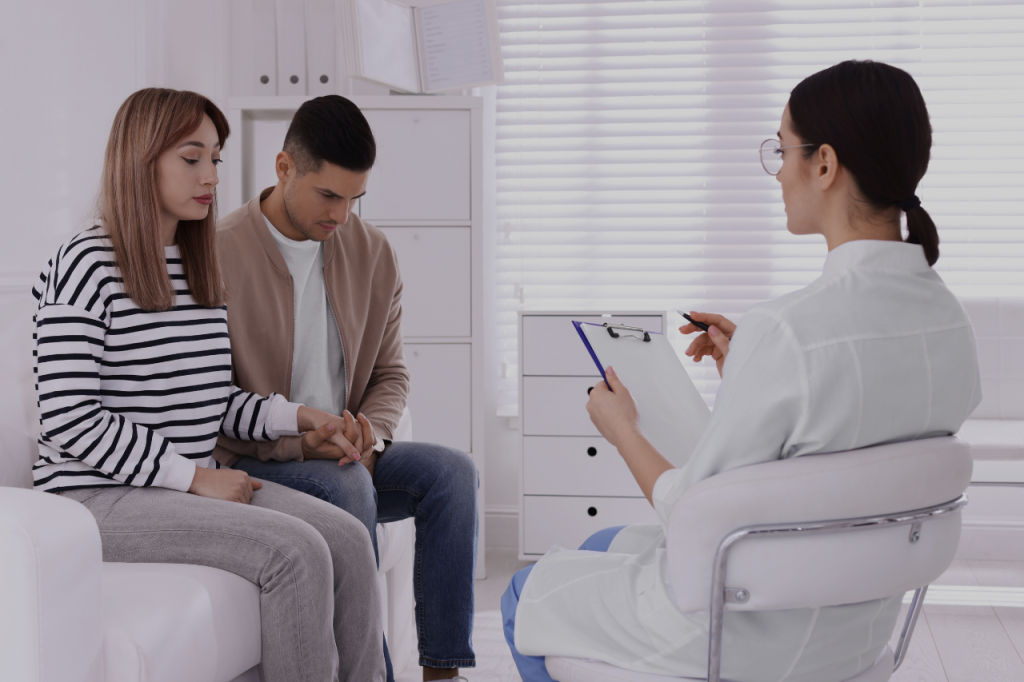1. What is sexual desire
Sexual desire (often called libido) is the interest or wish to experience sexual activity or sexual thoughts. It’s normal for desire to fluctuate across months and life stages — pregnancy, new relationships, chronic stress, sleep loss, and menopause can all change how much sexual desire you feel. If a drop in desire is causing you distress or relationship problems, it’s worth investigating.
2. Why sexual desire changes
Sexual desire is influenced by a mix of body, brain, and relationship factors:
Biological / physical
- Hormone shifts (pregnancy, postpartum, perimenopause/menopause).
- Chronic illness, pain, thyroid or metabolic issues.
- Medications (some antidepressants, blood pressure drugs, hormonal contraceptives).
Psychological
- Stress, anxiety, depression, body image concerns.
Relational
- Communication breakdown, unresolved conflict, timing and intimacy patterns.
Lifestyle
- Poor sleep, alcohol or heavy smoking, lack of movement, and poor nutrition.
Each person is different — often multiple things add up. The good news: many of these are treatable or improvable.
3. How clinicians assess low desire
A thorough assessment typically includes:
- A symptom history (how long, context, what makes it better/worse).
- Medical review and selective blood tests (thyroid, sex hormones, anemia, vitamin D where relevant).
- Medication review (some drugs blunt desire).
- Screening for mood disorders and relationship/sexual history.
- If needed, referral to pelvic floor physiotherapy, endocrinology, or psychosexual therapy.
A formal diagnosis like Hypoactive Sexual Desire Disorder (HSDD) is only considered when low desire causes significant distress and isn’t explained by another medical or relational problem.

4. Evidence-based treatment options
Treatment is almost always tailored — combining medical and non-medical approaches usually works best.
Non-medical, evidence-based approaches
- Psychosexual therapy / counselling — helps with communication, expectations, and sexual scripts. Counselling may be individual or with your partner.
- Mindfulness and sex-focused therapy — structured mindfulness programs and short, guided exercises improve attention to sensations and reduce anxiety, and have been shown to boost desire and arousal in some women.
- Pelvic floor muscle training — supervised pelvic floor exercises and physiotherapy can improve sexual function and comfort, which may increase desire. Recent reviews show benefits, though certainty varies.
Medical options (when indicated)
- Medication for HSDD: The FDA has approved two drugs for acquired, generalized HSDD in premenopausal women — flibanserin (Addyi) and bremelanotide (Vyleesi). These are prescription options with specific use rules and side effects; benefits are modest for many patients and require discussion with a clinician.
- Hormone therapy: For perimenopausal or menopausal women, local estrogen or systemic hormonal options can improve vaginal comfort and sometimes sexual function — these should be discussed individually with a provider.
Important safety note: Medications and hormone therapies have specific risks, interactions (for example alcohol warnings with some drugs), and eligibility criteria. Always review options with a clinician before starting a prescription.
5. A simple, holistic 6-week plan to try at home
This plan supports holistic sexual wellness Hyderabad goals and pairs well with clinical care.
Week 1 — Foundations
- Sleep: aim 7–8 hours; set a wind-down routine.
- Reduce daily alcohol; heavy drinking reduces desire.
- Start gentle daily movement (20–30 min walk).
Week 2 — Body & breath
- Pelvic floor warmups: 3 sets of 8 gentle contractions (not squeezing too hard). Consider a physiotherapy referral if pain or confusion.
- Deep breathing practice (5 min/day) to reduce sympathetic overdrive.
Week 3 — Mindfulness & attention
- 10 minutes of guided body-scan or mindfulness practice 3×/week. Research ties mindfulness to improved desire.
Week 4 — Communication
- Try a weekly ‘relationship check-in’ (10 minutes) — focus on connection, not problem solving. Share one thing you appreciate.
Week 5 — Sensate focus (short exercises)
- Non-sexual touch for 10–15 minutes with a partner (or self-touch practice) to re-learn pleasurable sensations and reduce performance pressure.
Week 6 — Review & plan
- Reassess: what changed? If distress or low desire persist, book a specialist consult.
Repeat and adapt. This is a supportive plan for holistic sexual wellness Hyderabad and pairs with clinical assessment.
6. When to see a specialist and why choose a clinic
See a clinician if:
- Low desire causes ongoing distress (for at least 3–6 months).
- Desire loss coincides with pain, bleeding, or other worrying symptoms.
- You’re on medications that might be the cause.
- You want tailored options like pelvic physiotherapy, psychosexual therapy, or assessment for medication/hormonal treatments.
If you’re in Hyderabad and want care that blends medical review with behavioural and body-based therapies, consider Female Sexual Health by Dr. Kusuma — located at Androcare-Swetha scans, 67-A, Journalist colony, Road no 70, Jubilee Hills, Hyderabad-500033. Visit femalesexualhealth.in to learn about services and book a consultation focused on holistic sexual wellness Hyderabad.
📞 Phone: 91 9000218377
🌐 Website: www.femalesexualhealth.in
7. Helpful enhancements
- Conversation starters: “I miss how we used to connect — can we try a short weekly check-in?”
- Quick relaxation: 4-4-8 breathing (inhale 4s — hold 4s — exhale 8s) before intimate moments.
- Arousal journal: Track sleep, mood, menstrual cycle, medications, and days you felt desire — patterns emerge.
- Pelvic floor checklist: Learn correct contraction (try stopping urine midstream once — just to identify muscles — then don’t repeat during urination). Then practice sets off the toilet. If pain or confusion, see a pelvic physiotherapist.
Final notes
Sexual desire is not a failing — it’s a signal that something about your health, life, or relationship needs attention. Small changes (sleep, movement, communication), targeted body work (pelvic physiotherapy), mind-training (mindfulness), and clinical options when needed can combine to produce meaningful improvement. If you’re in Hyderabad and prefer local, specialist care that mixes medical assessment with holistic treatment, Female Sexual Health by Dr. Kusuma is set up to help.






